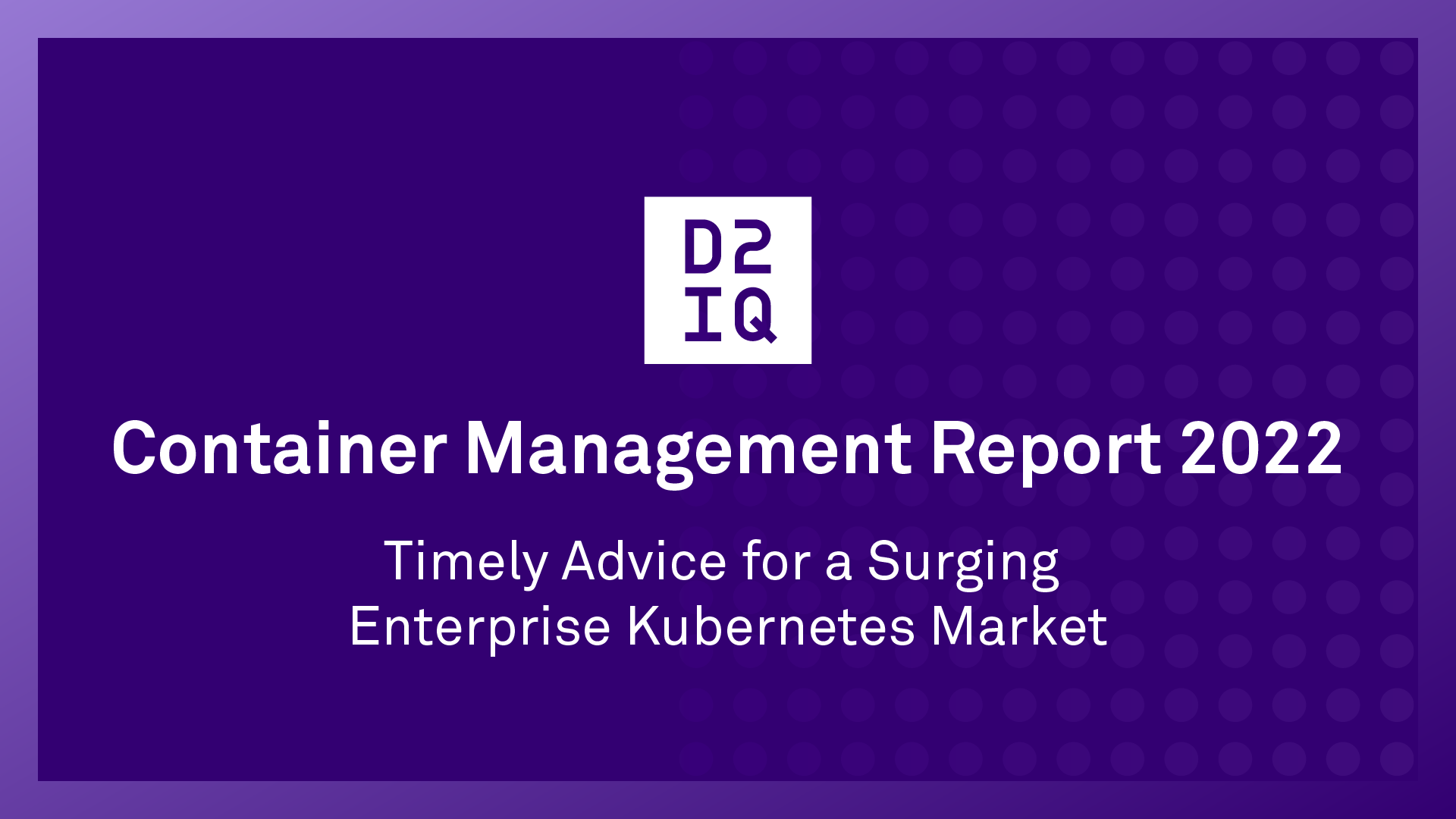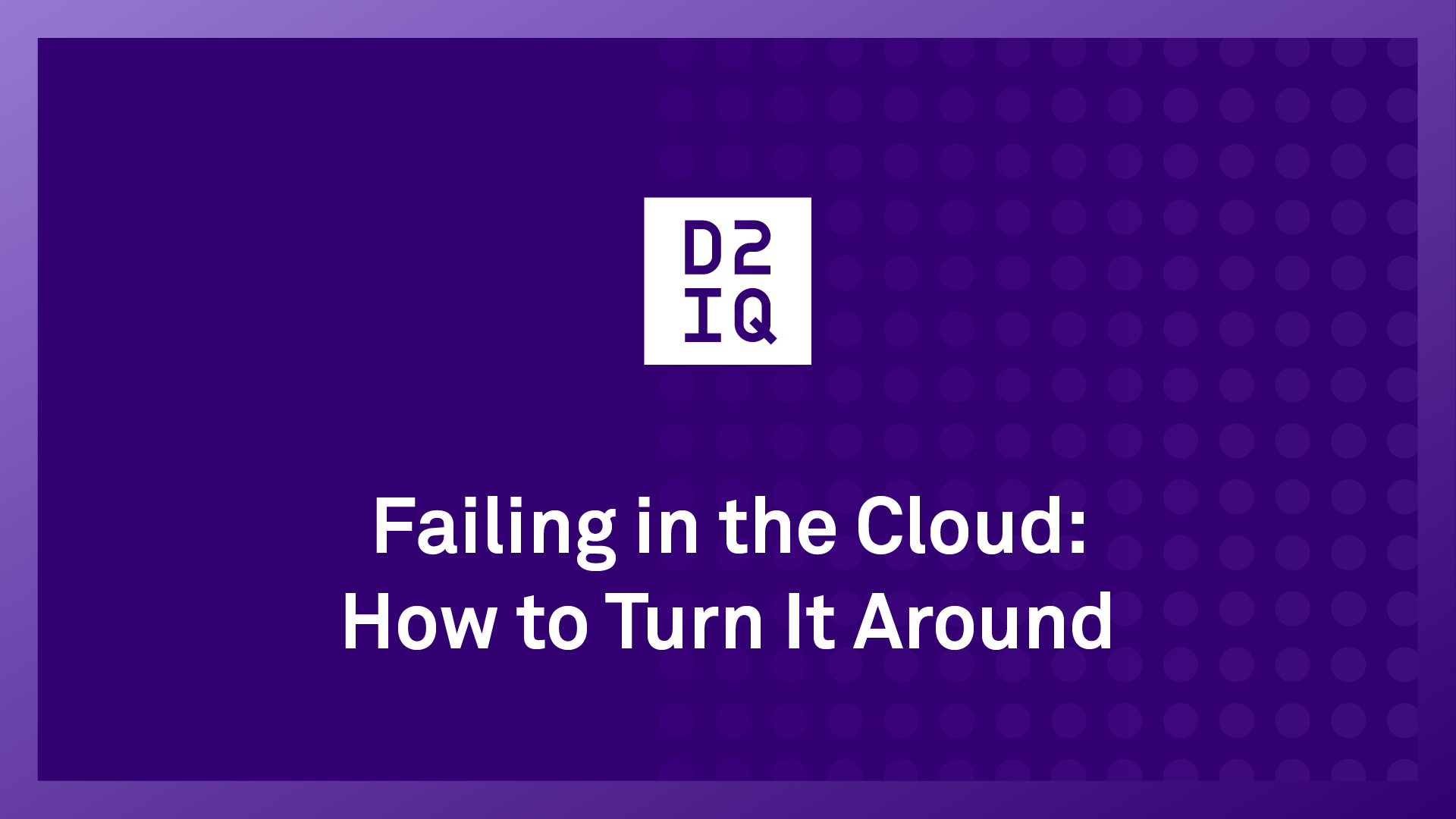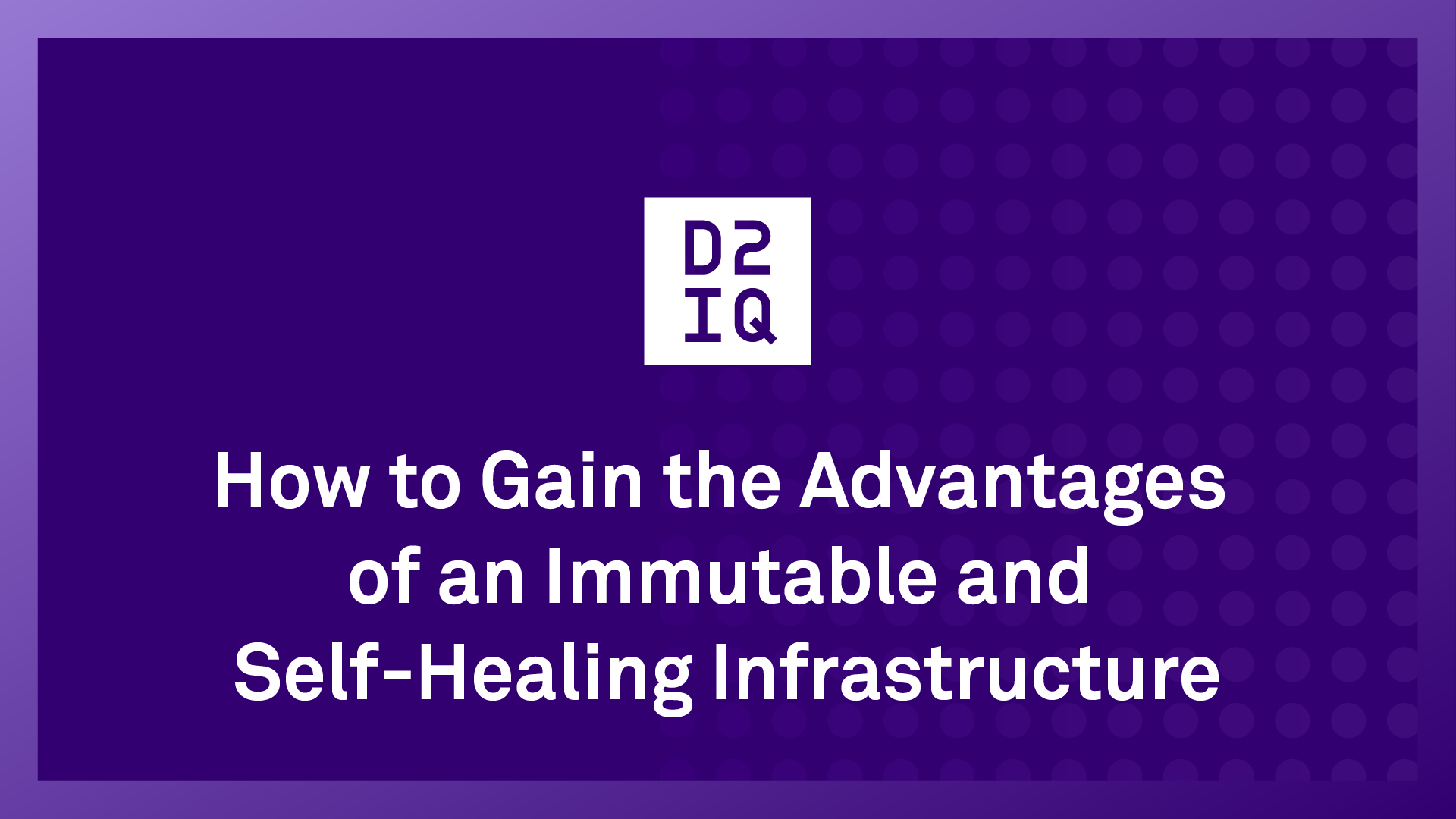2022 Gartner® Market Guide for Container Management identifies the major trends in the container and Kubernetes market and offers guidance for organizations deploying containerized platforms. D2iQ, whose offerings we believe align closely with Gartner recommendations, is listed as a Representative Vendor for container management.
The findings in the Gartner container management report should be taken in context with the analyst firm’s predictions for widespread cloud-native adoption, including
the following:
- By 2025, Gartner estimates that over 95% of new digital workloads will be deployed on cloud-native platforms, up from 30% in 2021.
“New workloads deployed in a cloud-native environment will be pervasive, not just popular,” says Gartner, “and anything non-cloud will be considered legacy.”
Business Reasons for Containerization
The first key takeaway from the Gartner container management report is that the business and technical benefits associated with why enterprises commence container deployments are still centered around enabling enterprise business agility and speed.
Thus, Gartner advises infrastructure and operations leaders to master containerization technology to support agility, modernization, and transformation. Moreover, says Gartner, “more enterprises have commenced container deployments while seeking cost savings and defense against vendor lock-in.”
These findings jibe with the reasons our customers have cited in partnering with D2iQ to deploy the D2iQ Kubernetes Platform (DKP). The same goals and outcomes can be seen in the business reasons cited in the case studies of
Cerved,
Lavego AG,
Multitude,
TrustedChoice.com, and other D2iQ customers.
The Value of Pure Open-Source Kubernetes
Another key Gartner finding is that interest in hybrid and multi-cloud deployments continues to increase. An observation we have been making corresponds with Gartner’s finding that “although most solutions are Kubernetes-based, vendors add other components that make the entire technology stack proprietary, which often prevents portability, thus enforcing lock-in.”
D2iQ customers have partnered with D2iQ to gain the advantages of adding multi-cloud and hybrid cloud management capabilities to their
AWS EKS deployments, as well as to gain the benefits of DKP being based on pure open-source Kubernetes.
These benefits include portability, lower cost of ownership, and the ability to take advantage of the continual stream of innovation within the open-source community.
DevOps Are Key to Business Agility
Another Gartner finding is that DevOps is the key to gaining business agility through containerized Kubernetes deployments. “The combination of DevOps and container technology can be a powerful enabler for application development agility and speed,” says Gartner, “making DevOps skills the critical factor to deployment success.”
These findings jibe with experiences of D2iQ customers who cite enabling their DevOps teams to manage Kubernetes as critical to gaining the business agility they were seeking through Kubernetes deployments.
Kubernetes Skills Gap
A number of surveys and reports relate that a lack of Kubernetes management skills is a major barrier to Kubernetes success. Gartner finds that “Container-related expertise is still limited, but improving.”
Two new challenges that have emerged, says Gartner, are “enterprises commencing container deployments without an ability to adopt DevOps principles and practices, and enterprises taking a ‘build it and they will come’ approach.” Both approaches, says Gartner, often lead to disappointment with container deployments.
D2iQ has enabled customers to overcome the Kubernetes skills gap through expert training and platform automation designed to simplify container management. Simplifying DevOps is the reason D2iQ has architected DKP around Cluster API (CAPI) and integrated GitOps workflow into the platform. As D2iQ CEO Tobi Knaup notes, the formula for Kubernetes success is “Declarative APIs + GitOps = Kubernetes done right.”
Serverless vs. Kubernetes
One of the hot topics being debated by industry observers is the degree to which serverless technology threatens to displace Kubernetes. Gartner sides with those who believe serverless and Kubernetes technologies will be complementary.
“Traditional container/Kubernetes offerings are overlapping more and more with serverless container and noncontainer offerings,” says Gartner, adding that it anticipates these technologies will increasingly be preferred over standard container/Kubernetes deployments.
AI and Machine Learning Gain Traction
Another key finding is that machine learning (ML) “is a growing use case for containers.” Containers add value to ML use cases, says Gartner, through better agility, high elasticity and automated MLOps pipeline construction.
As Gartner points out, “Container management vendors have been building a cohesive link between DevOps toolchains and ML workflow, along with providing ecosystem integration with independent software and hardware vendors that offer AI infrastructure and data science workbench tools.”
Here, too, D2iQ is pushing the envelope by providing a Kaptain AI/ML offering that eases AI/ML operations for data scientists by enabling them to focus on business results rather than configuring underlying technology.
The integration of AI/ML with containers is part of the smart cloud-native revolution in which the winning organizations will be those that are best able to obtain and leverage smart cloud-native app capabilities.
Gartner also notes that “Container management vendors have been improving their support for edge computing use cases.” This observation jibes with the increasing number of customers with which D2iQ is partnering to develop edge/IoT applications, including BMW, GE Healthcare, BT Security, and Royal Caribbean Cruise Lines.
Look for a Healthy Ecosystem
Finally, Gartner advises organizations to closely monitor a vendor’s marketplace as a good way to gauge the health of its ecosystem.
“Vendors are continually enhancing their marketplaces to enable easy access to third-party container tools and applications that are optimized for containers and Kubernetes,” Gartner notes.
Here, too, the strength of D2iQ’s ecosystem can be measured by the increasing number of applications made available in the DKP Service Catalog, by D2iQ’s participation in the Cloud Native Computing Foundation (CNCF), and by the increasing number of partnerships D2iQ is forging, a roster that includes AWS, Microsoft, GitLab, Aqua, Kong, NVIDIA, Nutanix, and
many more.
To learn more about the D2iQ Kubernetes Platform, Kaptain AIML, DKP Edge/IoT, and D2iQ partners and customers, visit d2iq.com or
speak with the experts at D2iQ.
Download the full Gartner Market Guide for Container Management 2022 here. Gartner, Market Guide for Container Management, Dennis Smith, Wataru Katsurashima, 15 March 2022
Gartner does not endorse any vendor, product or service depicted in its research publications and does not advise technology users to select only those vendors with the highest ratings or other designation. Gartner research publications consist of the opinions of Gartner’s research organization and should not be construed as statements of fact. Gartner disclaims all warranties, expressed or implied, with respect to this research, including any warranties of merchantability or fitness for a particular purpose.
GARTNER is a registered trademark and service mark of Gartner, Inc. and/or its affiliates in the U.S. and internationally and is used herein with permission. All rights reserved.









